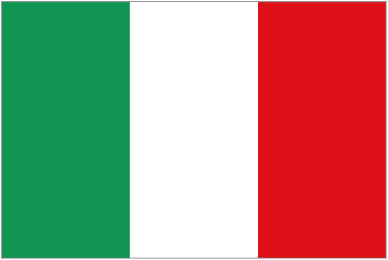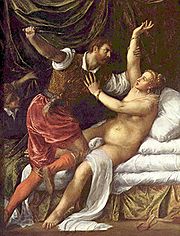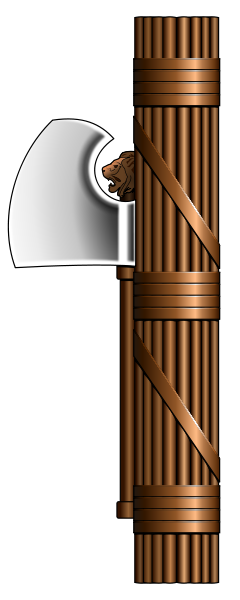June 2

Today the descendants of the world’s oldest Republic celebrate Republic Day.
Over 2500 years ago present-day Italy was ruled by a king with a superbadass name, Tarquinius Superbus, who inherited the throne, not through direct lineage, but the even-older-fashion way–by offing his wife’s dad King Tullius.
Servius Tullius had angered the Roman elite by implementing revolutionary policies that protected the poor and laid the foundations for constitutional government. Tarquinius and the king’s daughter Tullia, outraged at how her father was flushing their country down the toilet, led the conspiracy to assassinate him, ending his 44-year reign. According to legend, Tullia showed her remorse for the murder by repeatedly running over her father’s dead body with a chariot.
Tarquinius ushered in a new age of Roman reform, by repealing his father-in-law’s Constitutional decrees and maintaining the peace through violence, murder and terrorism. These halcyon days came to an abrupt halt in 510 BC. Just as Tullius’ daughter became the king’s downfall, Tarquinius’ son Sextus would become his, taking down not only his father, but the entire concept of monarchy in his wake.

The unruly and loathsome Sextus decided it would be a thrill to rape one of the most respected and pious members of Roman patrician society. He told Lucretia, wife of the nobleman Collatinus, that if she refused to submit to him, he would have her killed and place her body in bed with a dead slave, all before her husband returned home. A fate worse than death, she would be disgraced for all time.
Lucretia gave in to the threat. But after the evil deed, she reported circumstances of the rape to her family. She then committed suicide to save them from scandal. The furor that arose against the king led to a revolt against the monarchy and the deposing of the whole king’s clan.
On these precarious beginnings grew the most famous republic in world history. A republic that only ended half a millennium later when Julius Caesar was elected dictator for life.
But that has nothing to do with Republic Day. No, the Italians celebrate Republic Day to commemorate this day back in 1946, when they elected to boot the House of Savoy, Europe’s longest ruling royal house, from power.

‘fascio-nating’ bit of linguistic trivia:
In 1922, after a series of riots and civil unrest, Italy’s King had appointed the strong figure of Mussolini, leader of the Fascist Party, to be the nation’s new Prime Minister. (Today’s word fascist comes from the Italian fascio, referring to a bundle of rods. In the 19th century the fascio was used by political groups as a symbol of Italian unity: the individual sticks of the fascio were fragile, while the bundle itself was unbreakable.)
The King assumed Mussolini would reign in the rebelling democratic and parliamentary institutions. Mussolini did indeed consolidate power, by declaring himself supreme dictator and doing away with any semblance of representative or Constitutional government.
In 1939 Mussolini and the Fascists brought Italy into World War II on the side of Nazi Germany in the hopes of rebuilding an empire–a mission accomplished by conquering King Zog of Albania. Mussolini met his fate near the end of the war. Executed by a Soviet firing squad, Mussolini’s body was hung upsidedown at an Esso gas station, where it became a punching bag for angry Italian citizens.
http://members.aol.com/Custermen85/ILDUCE/Mussolini.htm

But his death didn’t ease resentment against the monarchy that had once promoted the dictator.
There were no names or specifics on the famous 1946 referendum. The ballot asked voters to determine whether the Head of the Italian State would be held by the Royal Family–the House of Savoy–or a democratically elected representative.
During this process King Vittorio Emanuele III handed over the throne to his son Umberto II. Umberto is called “the King of May”, referring to his fleeting reign. On June 2 and 3 a narrow margin of Italians voted for the final abolition of the Italian monarchy.
As a result of the referendum the king and his progeny were forced to leave Italy forever. It wasn’t until 2002 that this provision was overturned, and the son of King Umberto, Victor Emmanuel, exiled for 56 years, finally re-entered the land he once almost ruled.
